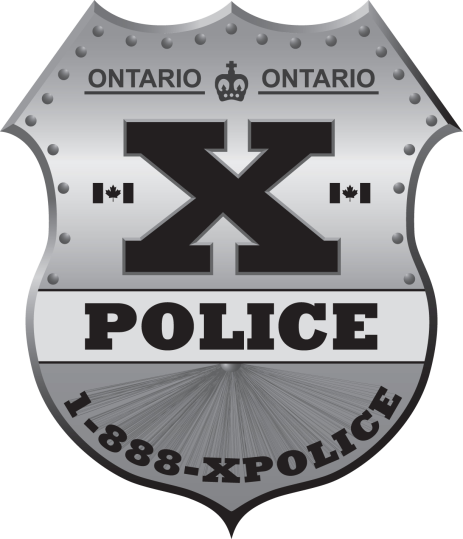
Many Canadian cities are trying to stop Uber from operating by filing court injunctions against the ride-sharing company. (Kai Pfaffenbach/Reuters)
The Canadian chapter of Mothers Against Drunk Driving is steering clear of the debate over Uber, even though MADD’s influential U.S. branch is crediting the ride dispatching app with helping reduce impaired driving in that country.
A study co-commissioned by MADD and Uber Technologies Inc. and released January 27 draws a link between the launch of UberX in California and a 6.5 per cent drop in drunk driving collisions involving drivers under 30 in parts of the state where the service is available.
According to the U.S. study, which is based on publicly available data as well as a survey conducted by Benson Strategy Group, the decline translates into 60 fewer crashes per month in California.
“We believe there is a direct relationship between the presence of UberX in a city and the amount of drunk driving crashes involving younger populations,” the study concludes.
Ottawa bylaw has cracked down on Uber drivers
The UberX smart phone app allows passengers to request rides from drivers who use their own vehicles. The company claims UberX fares are 40 to 50 per cent lower than fares for the same trip in a licensed taxi.
Uber’s arrival in Canadian cities like Ottawa has been met with stiff local opposition over concerns about the qualifications of the people offering the rides.
Bylaw officers in Ottawa routinely carry out sting operations targeting UberX drivers, resulting in 26 separate charges against 14 individuals, for a total of $11,730 in fines since last fall.
Concerns about Uber have been raised in the U.S. as well, but in July 2014 Uber and MADD formed a formal partnership in the U.S.
On the recent Super Bowl Sunday, Uber donated one dollar from each ride between 3 p.m. and midnight to MADD.
MADD’s U.S. chapter declined an interview request, but in a news release national president Colleen-Sheehey Church says, “With so many reliable and accessible options at people’s fingertips, there are no more excuses to drink and drive. Uber’s proven commitment to keeping the roads safe is critical to helping us create a future of no more victims.”
Insurance, driver qualifications are issues for Uber
However MADD Canada appears to be taking a more cautious approach to Uber’s relatively recent arrival in several Canadian cities.
“We certainly want more services available at these key times, but we’re not at the point in Canada where we would consider a relationship with Uber,” says MADD Canada’s Chief Executive Officer, Andrew Murie.
“Routinely what happens here is there’s not enough available cabs, and so consequently people make bad choices…which is unfortunate, and it’s an easily resolved problem.”
Murie says MADD Canada is concerned UberX drivers may not be properly qualified, and may not have the appropriate insurance to cover their passengers in the event of a collision. But Murie says MADD would also like to see municipalities like Ottawa loosen restrictions on the traditional taxi industry.
He says that may involve issuing more licenses, or introducing a surcharge for peak times such as New Year’s Eve, to encourage more cabs on the road when they’re most needed.
“The taxi industry needs to kind of wake up and come into the 21st century,” says Murie.
MADD Canada doesn’t want to take sides
Ian Black, general manager of Uber’s Ontario operation, suggests organizations like MADD may just need time to get used to his company’s business model.
“As we grow transportation options in Canadian cities and as we make the system more reliable I think there’s a huge opportunity for us to lower drink driving rates, to lower congestion in Canadian cities, and really for Uber and ride sharing to be a force for positive good,” says Black.
Black points out the UberX service was only introduced to Toronto, Ottawa and Montreal last fall, “But going forward I think we certainly welcome a relationship with organizations like MADD Canada.”
Murie isn’t ruling out that possibility. “I’m not closing the door. What we’re saying to the (taxi) industry is, respond. Don’t ask us to take one side or the other.”
Studies point to links to Uber demand and alcohol
Some have questioned the reliability of the conclusions in the Uber/MADD study, including ProPublica, an independent, non-profit news organization that produces investigative journalism in the public interest.
The MADD-Uber survey had only 807 respondents and was conducted online, but Benson Strategy Group says the people interviewed on December 1-4, 2014, represented a general population sample from the largest US cities where Uber operates. The margin of error for the entire data set is 3.38 per cent, 19 times out of 20, the group said.
The survey said respondents mostly agreed Uber has made it easier to avoid driving home after drinking and made their friends less likely to drink and drive.
The most recent study by MADD and Uber also looks at US markets outside California: It found that in Miami, the demand for Uber tends to peak at the same hour that historically saw the most alcohol-related crashes; in Pittsburgh demand peaks at 2 a.m., when bars in that city close; and in Chicago, a disproportionate number of weekend and late-night ride requests came from businesses with liquor licenses.
A May 2014 study by Uber also drew a link between the service’s arrival in Seattle, and a ten per cent decline in DUI arrests.
Source: CBC News
